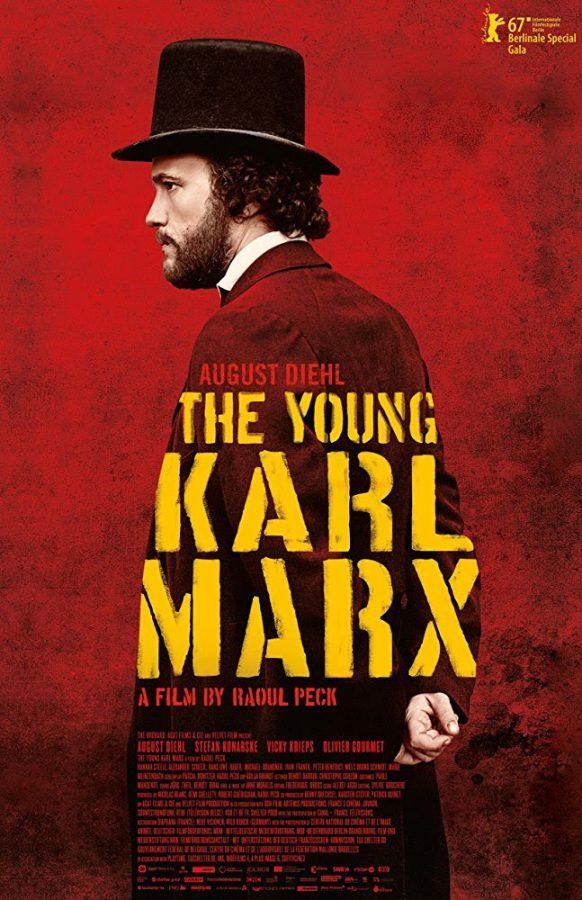Meet ‘The Young Karl Marx’
Poster for the new film, “The Young Karl Marx,” directed by Raoul Peck.
February 28, 2018
“The Young Karl Marx” is a new film following the figure behind “The Communist Manifesto” and Marxism. The biopic is heavy on discussion, aiming to capture the volatility of Europe’s political system in the 19th century and how Marx approached these complicated times through conversation.
Despite its title, the film is more about Marx’s relationship with the other great minds that helped him hone his vision for communism — namely his relationship with Friedrich Engels, another German philosopher with whom he worked closely — than it is about Marx himself.
Director Raoul Peck, the man behind the 2016 James Baldwin documentary “I Am Not Your Negro,” succeeds in using dialogue to illustrate the true origin of radical politics –– smart guys sitting around a table and arguing. A late night pub conversation becomes a tense fight of the minds; a clash between the practicality of a worker’s revolution and the ideation of it.
Marx (August Diehl) has lived in poverty for most of his life and is brash and fiery with indignation. On the other hand, Engels (Stefan Konarske) is a rich Englishman, and a mill owner’s son, who regularly exploits the people he is trying to liberate.
Despite their differences, the energy between these two men ends up becoming the highlight of the film. It is incredibly compelling to watch the two mold each other’s ideas from infancy to legacy.
But for all its talk of politics, the film is merely an overview of the inception of Marxism. It doesn’t accomplish anything revolutionary with the topic other than offering a superficial summary of revolution-era politics and the minds behind these ideologies. While at times this aspect — talk, conversation and academic arguments — is incredibly engaging, a lot of it feels to be a bit difficult to get through. Especially since the film does not try to actively subvert traditional understandings of Communism or of Marx. At the film’s lowest points, it comes across as a hyper romanticized history lesson.
The “Young Karl Marx” does a great job introducing Marx as a figure, solidified by the relationships he makes throughout the movie –– with his wife, Engels and Engels’ wife, Mary Bruns (Hannah Steele). However, in contrast to the messiness of European politics at the time, the film is very clean cut with a linear storyline that paints an overly simplified and picture of revolution-era politics.
While Peck leaves something to be desired with his portrayal of the film’s ideas and settings, he is still successful in executing rhetoric. The speeches are engaging and the dynamics between the characters are full of energy. Peck manages to illustrate the urgency, if nothing else, between the young working class and the establishment. It is an illustration of the powers of free speech and free thought, and “The Young Karl Marx” reveals the power of spoken word against traditionalist structures.
“The Young Karl Marx” opened Friday, Feb. 23 at The Metrograph.
Email Jessica Xing at [email protected].



























































































































































